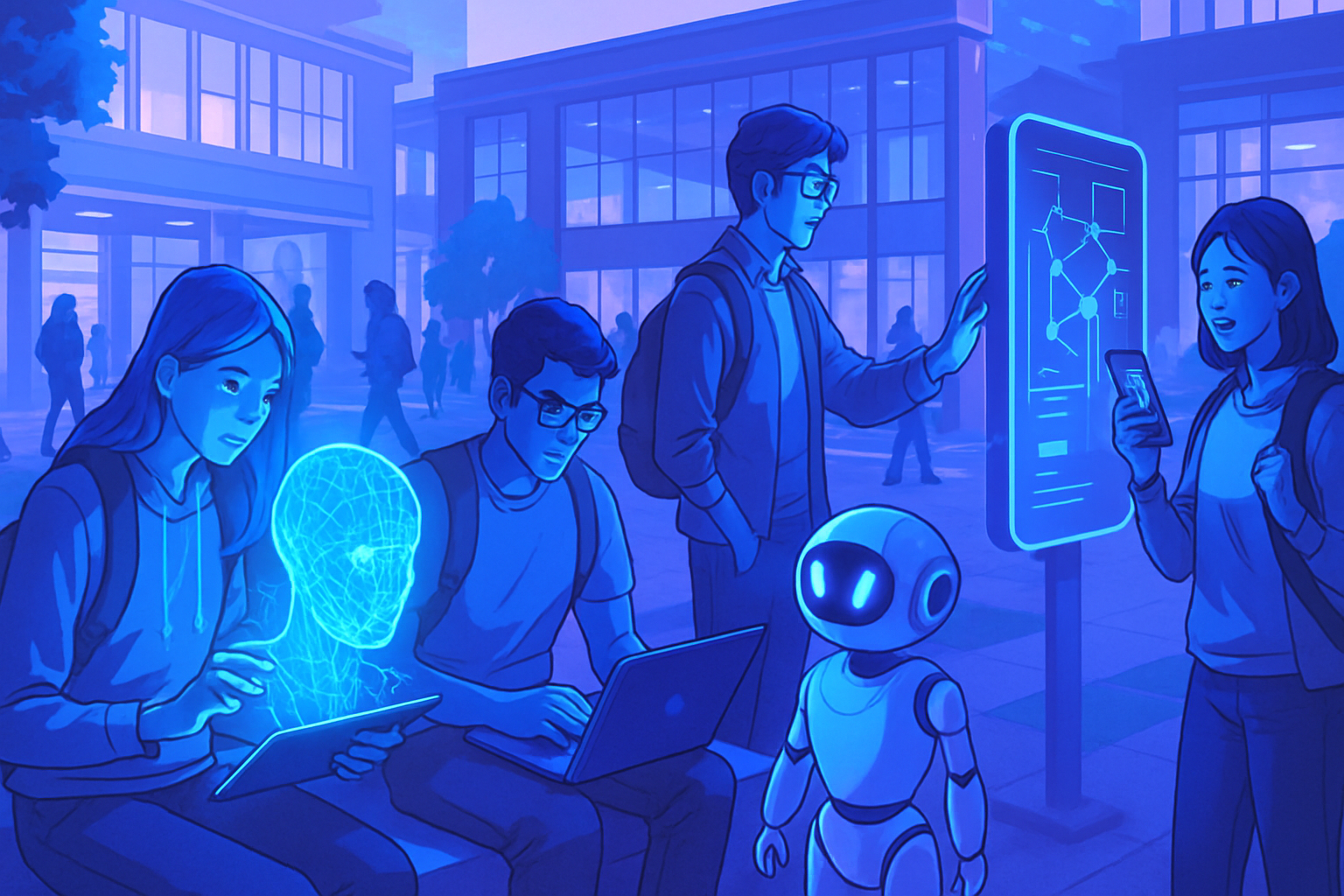OpenAI positions itself as a pioneer in the academic world, seeking to attract students with artificial intelligence. The link between technology and education emerges as a major issue; the advantages and risks intertwine in this new paradigm. The influence of chatbots on learning methods raises serious concerns, particularly about the quality of information conveyed.
Access to a “personalized tutoring” appears appealing, but let’s not forget the unforeseen consequences on students’ critical reasoning. How can we ensure that this technological revolution promotes intellectual growth rather than diminishing the human interactions essential to learning?
OpenAI on University Campuses
OpenAI is ramping up its efforts to integrate ChatGPT into the educational ecosystem, creating a new dynamic on campuses. The company wants students to benefit from a personalized AI account upon their arrival at university, similar to the assignment of a school email address. In this regard, it presents its chatbot as an essential support for students, capable of fulfilling various roles, ranging from personal tutor to career assistant.
School and Skepticism
Educators generally welcome artificial intelligence tools with skepticism. Previous studies have shown that these systems can provide erroneous information, fueling mistrust. Despite these concerns, some institutions, such as the University of Maryland and Duke University, are already engaging with the premium ChatGPT Edu service. These universities are beginning to integrate chatbots into their educational pathways, indicating a paradigm shift.
Risk of Cognitive Dependence
Research suggests that dependence on artificial intelligence could harm cognitive skills. A recent report reveals that students, by relying on chatbots, are neglecting critical reasoning. Excessive use of these tools could lead to a form of intellectual laziness, where students prefer quick solutions to academic challenges.
Questions of Reliability
The potential pitfalls of OpenAI are not limited to simply providing inaccurate information. Researchers, testing models on a patent law textbook, found that the responses produced contained significant errors. About 25% of the cases indicated by the OpenAI model were deemed unacceptable and harmful to learning.
Impact on Social Interactions
The use of chatbots may also compromise essential human interactions. A student, when meeting a tutor, engages in a social interaction that develops their emotional intelligence. In contrast, a chatbot can only offer a cold response, lacking the necessary empathy to create meaningful connections.
Alternatives to AI
Companies like Elon Musk’s xAI offer alternative solutions, such as Grok, provided free during exam periods. Google, on its part, makes its AI suite Gemini available to students until the end of the 2025-2026 academic year. These initiatives reflect a widespread desire to include AI in the academic world while raising significant concerns.
Towards a Redefinition of Learning?
OpenAI aims to transform the university experience by offering AI alternatives to many pedagogical aspects. The desire to integrate these technologies could quickly change the very nature of learning. However, concerns related to academic integrity and the training of information consumers must remain at the heart of the debates.
For relevant and up-to-date information on the use of artificial intelligence in education, students can refer to specialized resources. Articles like this one highlight the issues to consider around these technologies, helping learners navigate a rapidly changing landscape:
- Students put AI to the test
- The latest language models in AI
- Essential questions about bias in data
- Challenges faced by newcomers in companies
- ChatGPT, the ideal companion for students
Frequently Asked Questions about OpenAI and the Use of Artificial Intelligence in Education
What are the main concerns of educators regarding the use of OpenAI chatbots in universities?
Many educators are concerned about the risk that these tools provide false information, which can harm students’ learning. They also fear it may compromise the development of necessary critical skills for analytical thinking.
How does OpenAI plan to personalize the student experience with its chatbots?
OpenAI wants every student to have a personalized AI account upon arrival on campus, allowing access to services ranging from academic assistance to job search support.
Why have some universities decided to adopt OpenAI tools despite initial fears?
Despite initial mistrust, several universities, such as the University of Maryland and Duke University, have recognized the potential benefits of integrating AI into education, prompting investments to enhance students’ academic experience.
What are the risks associated with students’ dependence on chatbots for their studies?
Dependence on AI can lead to an erosion of critical thinking skills and a tendency to avoid the cognitive effort necessary for intellectual development, which can have detrimental effects on students’ learning capacity.
How do OpenAI chatbots affect social interactions between students and educators?
The use of chatbots may decrease human interactions, which are essential for building relationships in the educational context, as they replace face-to-face exchanges that foster social support and a sense of belonging.
What studies support the idea that the use of chatbots is not beneficial for learning?
Recent studies indicate that a significant proportion of interactions with OpenAI chatbots produced responses classified as unacceptable or harmful to learning, emphasizing the need for caution in their adoption.
Does OpenAI have initiatives to improve the reliability of the information provided by its chatbots?
OpenAI is continuously working to improve its models, but the challenge remains to minimize information hallucinations and ensure that responses are based on truthful and accurate data.






